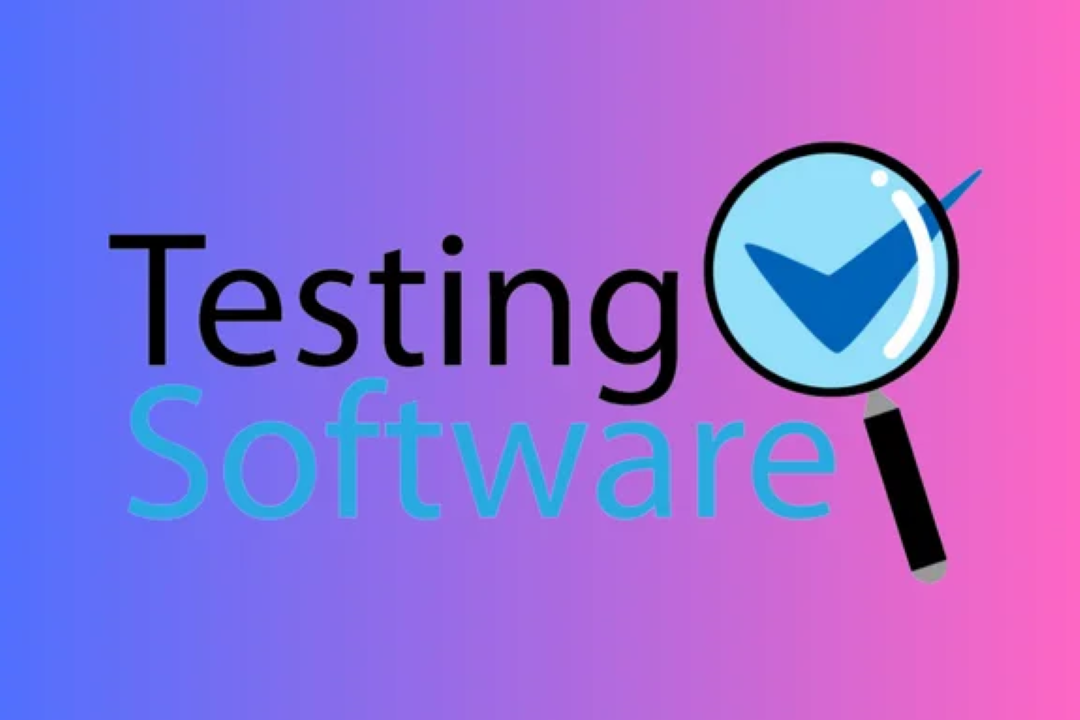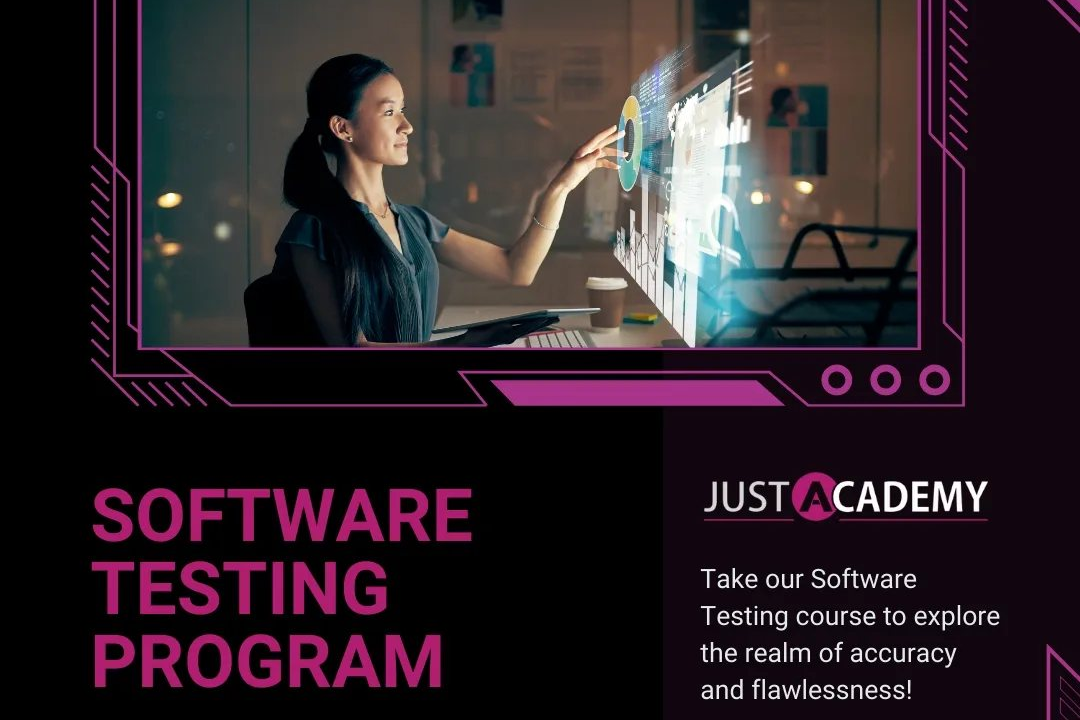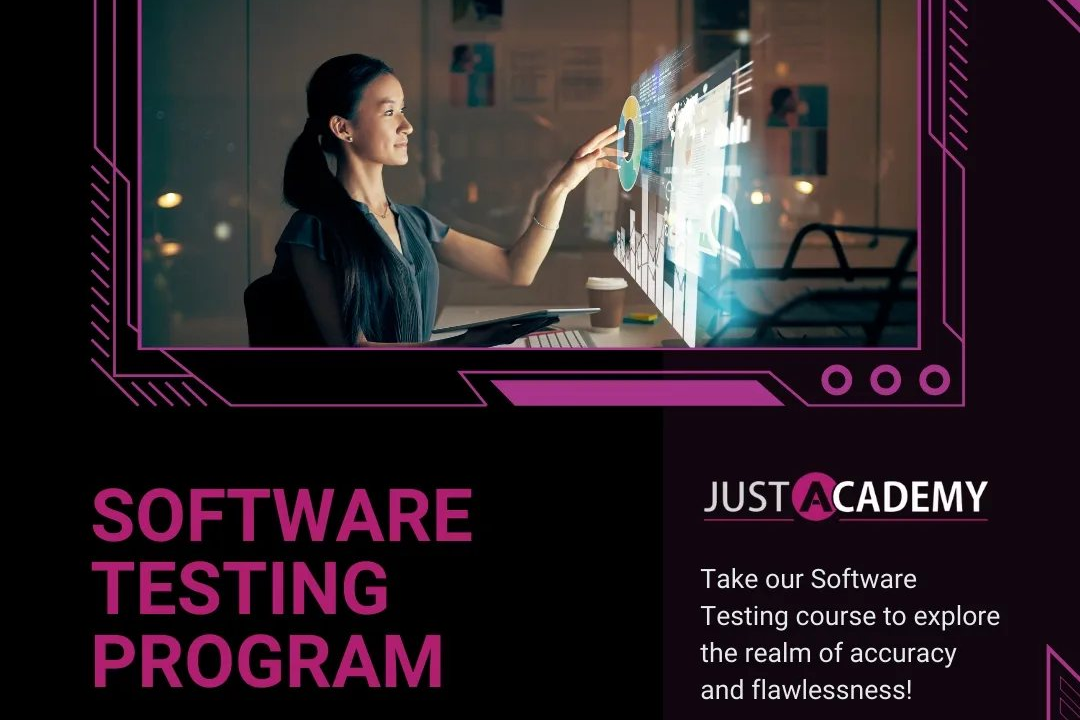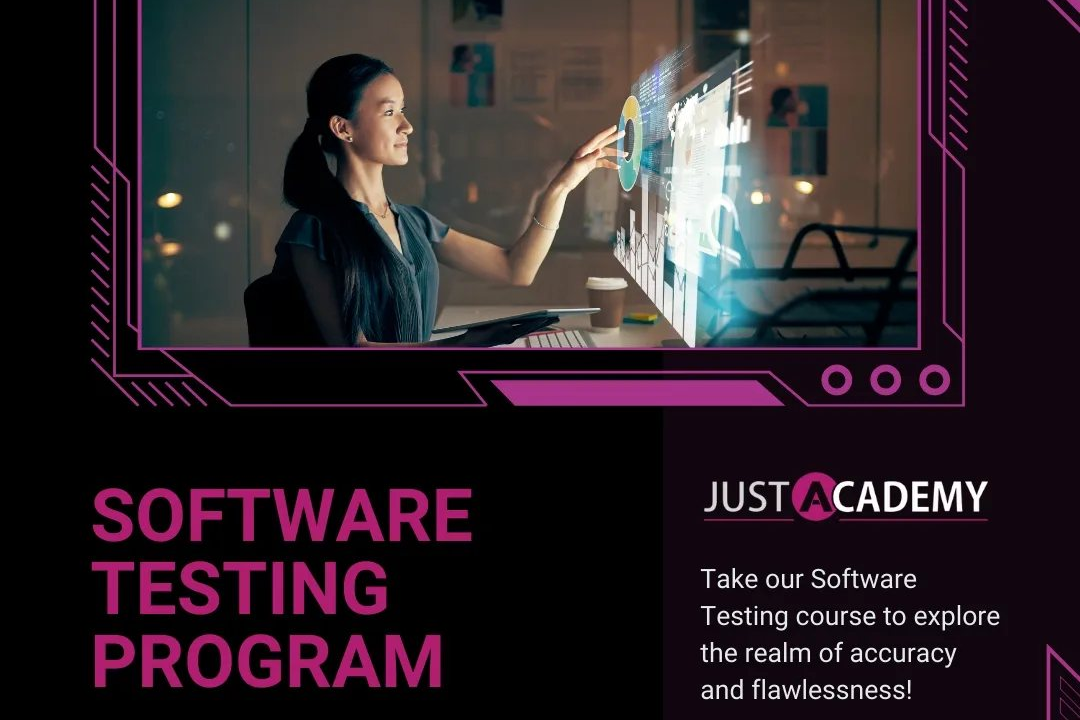manual testing courses in BTM
Manual testing courses in BTM (Bangalore) are specialized training programs designed to equip learne
manual testing courses in BTM
Manual testing courses in BTM (Bangalore) are invaluable for aspiring software testers seeking to build a strong foundation in quality assurance. These programs equip participants with the necessary skills to identify defects in software applications through thorough testing techniques. Learners engage in hands-on projects that simulate real-world testing scenarios, enhancing their problem-solving abilities and attention to detail. With a robust understanding of testing methodologies and best practices, graduates are well-prepared to contribute effectively to software development teams, ensuring that products meet quality standards and deliver exceptional user experiences. This makes manual testing skills increasingly important in today's technology-driven marketplace.
To Download Our Brochure: https://www.justacademy.co/download-brochure-for-free
Message us for more information: +91 9987184296
Manual testing courses in BTM (Bangalore) are invaluable for aspiring software testers seeking to build a strong foundation in quality assurance. These programs equip participants with the necessary skills to identify defects in software applications through thorough testing techniques. Learners engage in hands on projects that simulate real world testing scenarios, enhancing their problem solving abilities and attention to detail. With a robust understanding of testing methodologies and best practices, graduates are well prepared to contribute effectively to software development teams, ensuring that products meet quality standards and deliver exceptional user experiences. This makes manual testing skills increasingly important in today's technology driven marketplace.
Course Overview
The “Manual Testing Courses in BTM” at JustAcademy offers a comprehensive curriculum designed for beginners and professionals looking to enhance their software testing skills. This course covers foundational concepts of manual testing, including test planning, test case design, execution, and defect management. Through a blend of theoretical knowledge and hands-on projects, participants will gain expertise in various testing methodologies and tools, preparing them for real-world scenarios in the software development lifecycle. By the end of the course, students will be equipped with the essential skills needed for effective quality assurance and ensuring software reliability.
Course Description
The “Manual Testing Courses in BTM” at JustAcademy provides an in-depth exploration of software testing fundamentals, targeting both beginners and those seeking to advance their testing skills. Participants will learn key concepts such as test planning, design, execution, and defect management, supported by practical, real-time projects that simulate industry scenarios. With a focus on various testing methodologies, the course empowers learners to effectively assess software quality and contribute to the development lifecycle. Upon completion, students will be equipped with essential skills and knowledge necessary for a successful career in manual testing.
Key Features
1 - Comprehensive Tool Coverage: Provides hands-on training with a range of industry-standard testing tools, including Selenium, JIRA, LoadRunner, and TestRail.
2) Practical Exercises: Features real-world exercises and case studies to apply tools in various testing scenarios.
3) Interactive Learning: Includes interactive sessions with industry experts for personalized feedback and guidance.
4) Detailed Tutorials: Offers extensive tutorials and documentation on tool functionalities and best practices.
5) Advanced Techniques: Covers both fundamental and advanced techniques for using testing tools effectively.
6) Data Visualization: Integrates tools for visualizing test metrics and results, enhancing data interpretation and decision-making.
7) Tool Integration: Teaches how to integrate testing tools into the software development lifecycle for streamlined workflows.
8) Project-Based Learning: Focuses on project-based learning to build practical skills and create a portfolio of completed tasks.
9) Career Support: Provides resources and support for applying learned skills to real-world job scenarios, including resume building and interview preparation.
10) Up-to-Date Content: Ensures that course materials reflect the latest industry standards and tool updates.
Benefits of taking our course
Functional Tools
1 - TestRail
TestRail is a web based test case management tool that enables teams to manage, track, and organize their testing efforts effectively. In the manual testing courses offered in BTM, students gain hands on experience with TestRail, learning how to create test plans, write test cases, and document test results. The software’s user friendly interface allows testers to maintain an organized repository of test cases, which is essential for ensuring thorough coverage of requirements. Students understand how to leverage TestRail to generate reports that help communicate testing progress and insights to stakeholders, facilitating better decision making.
2) JIRA
JIRA is an agile project management tool commonly used to track issues and project progress. In the context of manual testing, students learn how to utilize JIRA for bug tracking and managing test cycles. The course covers how to create and manage test cases and defects, allowing students to see real world application scenarios. With an emphasis on collaboration, students also explore how JIRA integrates with other tools, enabling seamless communication among developers and testers. Understanding JIRA helps students develop organizational skills vital for successful testing in a team environment.
3) Postman
Postman is a widely used tool for API testing, essential in validating the functionality of APIs. The manual testing courses in BTM introduce students to Postman, where they learn to execute manual API tests for web services. Through practical exercises, students gain experience in creating requests, managing environments, and analyzing responses. This knowledge is crucial in a landscape where applications increasingly rely on APIs for data exchange. By mastering Postman, students enhance their testing competency, ensuring they can effectively deliver functional and performance testing of web services.
4) Excel
Microsoft Excel is an indispensable tool in manual testing for managing test data and executing test case tracking. The courses emphasize how students can use Excel to document test cases, track execution results, and create metrics for report generation. Students learn to leverage functions and features like pivot tables to analyze testing data efficiently. Excel’s versatility makes it a go to resource for testers to organize large volumes of information. Learning to use Excel effectively streamlines the testing process and aids in maintaining clear documentation, critical for successful project deliveries.
5) Selenium IDE
Selenium IDE is an integrated development environment for Selenium scripts that aids in automating testing processes. Although primarily an automation tool, its usage is also explored in manual testing courses to demonstrate how automated scripts can complement manual testing efforts. Students learn how to record and playback test cases, enabling them to understand the basics of automation. The course is designed to instill knowledge of how manual testing principles apply in automation scenarios. This awareness enhances students' skill sets, preparing them for more advanced roles in testing environments that require both manual and automated testing strategies.
6) Bugzilla
Bugzilla is a powerful defect tracking tool that allows testers to log, track, and manage bugs throughout the testing cycle. In the manual testing courses, students learn to navigate Bugzilla’s features for effective bug tracking. The coursework entails creating bug reports, assigning issues to team members, and managing bug statuses. Through practical training, students experience how Bugzilla fosters better communication among developers, testers, and project managers. This tool is vital for ensuring that defects are addressed and resolved promptly, making it a crucial part of any manual testing process.
7) Quality Center (ALM)
Quality Center, now known as Micro Focus ALM, is a comprehensive test management tool that provides an end to end solution for managing application lifecycle processes. In JustAcademy’s manual testing courses, students explore how Quality Center aids in organizing test cases, managing defects, and ensuring traceability between requirements and test executions. The curriculum includes practical exercises on creating requirements, designing test cases, and linking defects to test results. By mastering Quality Center, students enhance their ability to manage testing resources effectively, thereby improving overall project quality.
8) TestLink
TestLink is an open source test management tool that provides a platform for creating and managing test cases. Within the manual testing curriculum, students are introduced to TestLink’s functionalities to develop test plans, execute test cases, and report bugs. The course includes hands on activities that enable students to appreciate the importance of test management tools in tracking overall testing progress. Familiarity with TestLink enhances students' repertoire, equipping them with the skills to implement efficient testing workflows in real world scenarios.
9) PostgreSQL
PostgreSQL is a powerful, open source relational database system often used in application testing. In the context of manual testing courses, students learn to query databases with PostgreSQL to validate data integrity and functionality during testing phases. The curriculum encompasses practical exercises that teach students to write SQL queries, enabling them to extract data necessary for verifying application behavior. This knowledge is critical for testers who need to ensure that backend functionalities align with expected outcomes.
10) Jenkins
Jenkins is an automation server that supports continuous integration and continuous delivery (CI/CD) processes. Within JustAcademy's manual testing courses, students gain insights into how Jenkins can be integrated into the testing process. Although primarily focused on automation, students learn how Jenkins can be utilized for managing test environments and executing automated test suites post deployment. Understanding Jenkins and its role in the CI/CD pipeline prepares students for modern testing environments where testing and development move hand in hand.
11 - Katalon Studio
Katalon Studio is an integrated testing solution that supports both web and mobile application testing. In the manual testing curriculum, students are introduced to Katalon Studio's features that facilitate the transition from manual to automated testing. Students learn how to create test cases using a user friendly platform that supports scripting languages like Groovy. This exposure enables students to appreciate how manual testing practices can be translated into automated tests, enhancing their overall testing capability.
12) Cucumber
Cucumber is a tool that supports Behavior Driven Development (BDD), allowing teams to write tests in a language understandable by non technical stakeholders. In the manual testing courses at JustAcademy, students learn the principles of BDD and how to create feature files using Gherkin syntax. By adopting Cucumber, students grasp the significance of collaboration between testers, developers, and business stakeholders, ensuring that all parties have a shared understanding of requirements, which leads to improved outcomes.
13) TestNG
TestNG is a testing framework inspired by JUnit that introduces new functionalities for test case management. In the manual testing training, students become familiar with TestNG's features, such as annotations, grouping, and parallel test execution. While focused primarily on automated testing, understanding TestNG equips manual testers with insights into how automation can supplement manual processes. This dual knowledge allows graduates to navigate environments where manual testing and automation coexist efficiently.
14) MindMap Tools
Mind mapping tools, such as XMind or MindMeister, can be utilized in manual testing for brainstorming and planning testing strategies. During the courses, students learn to create mind maps that outline test scenarios, test case hierarchies, and stakeholder requirements. This visual representation helps in enhancing understanding and retention of complex information, leading to more effective testing strategies. Familiarity with these tools fosters creativity and collaboration in the test planning process, essential attributes for successful testing teams.
15) SoapUI
SoapUI is a tool for testing APIs, particularly SOAP and REST web services. In the manual testing courses, students gain insights into how to utilize SoapUI for functional testing of APIs. The curriculum includes practical training in crafting test cases, validating responses, and performing load testing. Understanding SoapUI empowers students with critical skills to assess the performance and reliability of services, which are crucial components of application quality assurance.
By covering these tools and topics thoroughly, JustAcademy ensures that students are well prepared to excel in the field of manual testing, with a solid foundation that spans both practical and theoretical knowledge.
Browse our course links : https://www.justacademy.co/all-courses
To Join our FREE DEMO Session:
This information is sourced from JustAcademy
Contact Info:
Roshan Chaturvedi
Message us on Whatsapp:
Email id: info@justacademy.co












